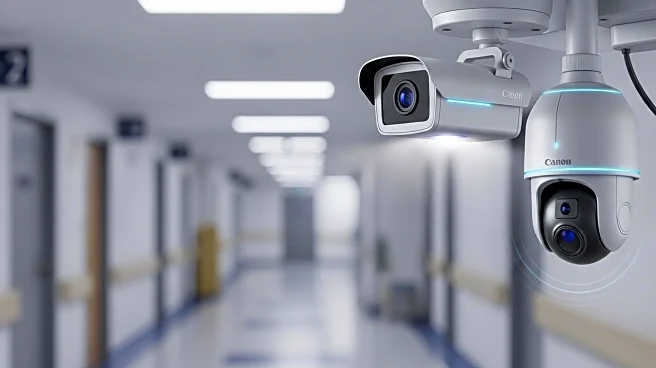What's Happening?
Healthcare facilities are increasingly adopting unified security platforms and AI technologies to address the issue of false alarms, which can disrupt patient care and staff efficiency. According to a study published in Science Direct, 80% to 90% of alarms in clinical settings are false, with ICU nurses reporting that these alarms can negatively impact patient care. Unified security systems integrate various components, such as access control logs, video surveillance, and IoT data, to provide a comprehensive view of incidents. This integration allows for quicker assessment and resolution of alarms, improving response times and reducing the burden on healthcare staff.
Why It's Important?
The reduction of false alarms in healthcare settings is crucial for enhancing patient care and staff efficiency. False alarms can lead to alarm fatigue, where staff may begin to ignore alarms, potentially missing critical alerts. By implementing advanced security technologies, healthcare facilities can ensure that staff focus on genuine threats, thereby improving patient safety and care quality. Additionally, these systems can lead to cost savings through better coordination of service delivery and resource management, ultimately benefiting the healthcare industry by optimizing operations and reducing unnecessary expenditures.
What's Next?
Healthcare facilities may continue to explore and invest in open architecture solutions that allow for scalability and integration with existing systems. As regulations evolve, these systems can be adapted to meet new requirements, ensuring compliance and operational efficiency. The ongoing development of AI and IoT technologies will likely lead to further advancements in security systems, providing even more accurate threat detection and response capabilities. Stakeholders, including hospital administrators and technology providers, will need to collaborate to ensure successful implementation and integration of these systems.
Beyond the Headlines
The adoption of unified security platforms in healthcare settings also raises ethical considerations regarding privacy and data security. As these systems collect and analyze vast amounts of data, healthcare providers must ensure that patient information is protected and used responsibly. Additionally, the reliance on technology for security and operational efficiency may shift the focus from human-centered care, necessitating a balance between technological advancements and personal patient interactions.










